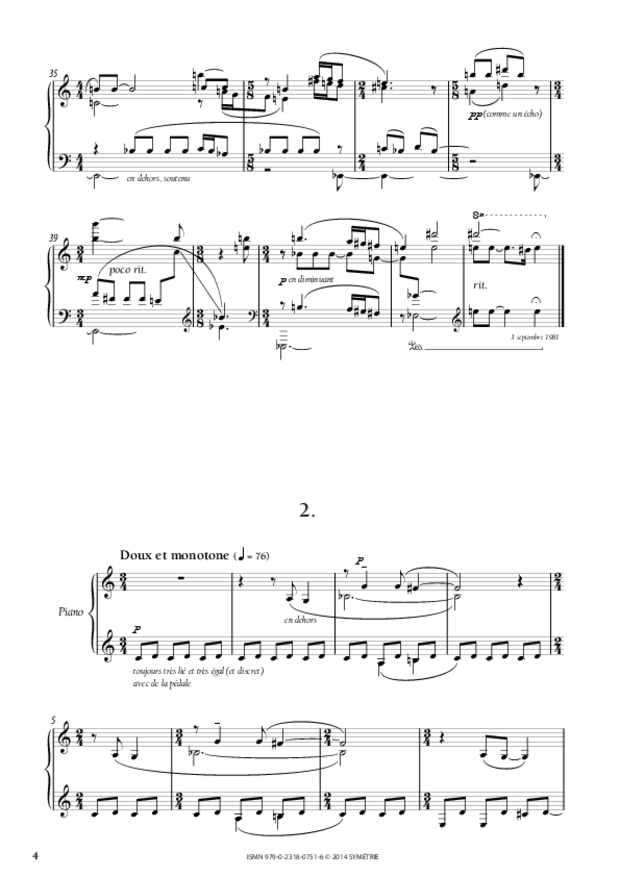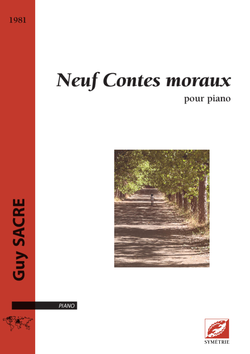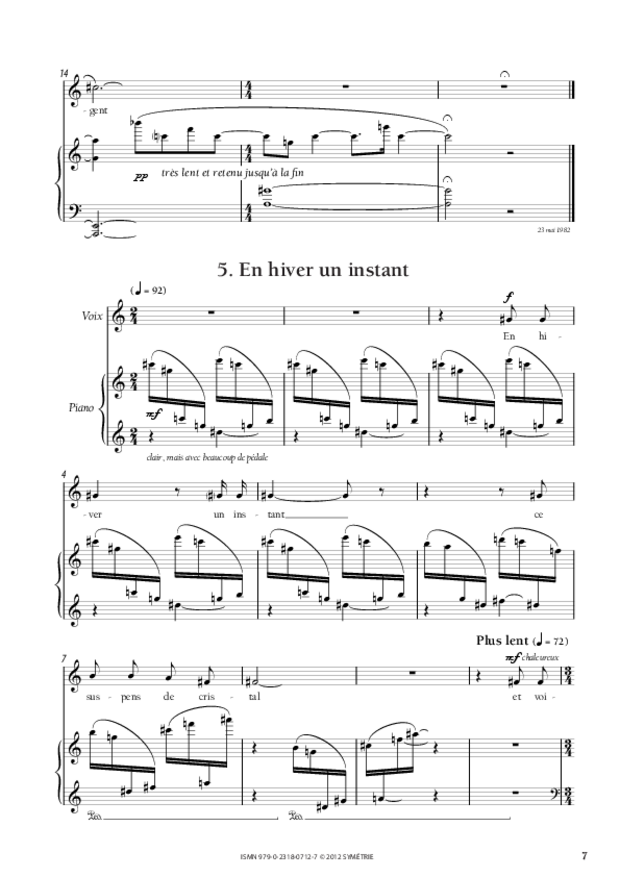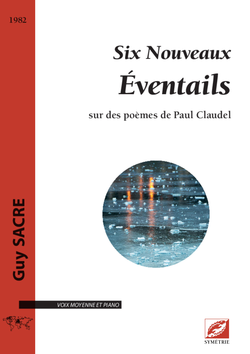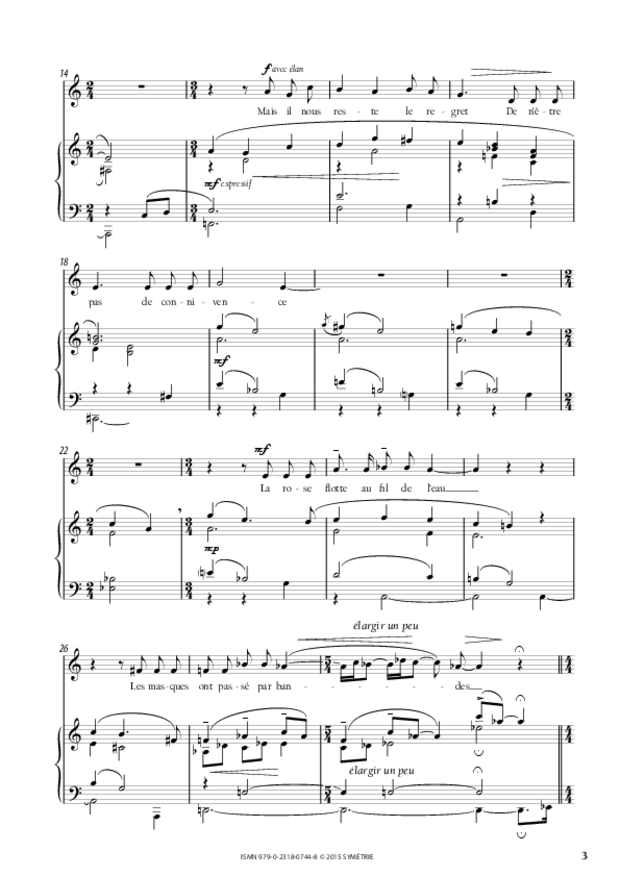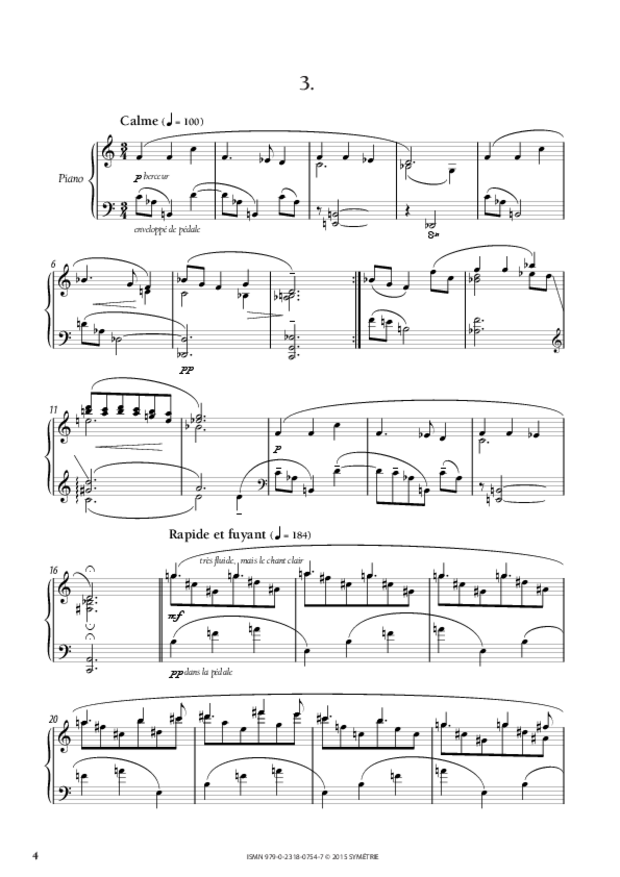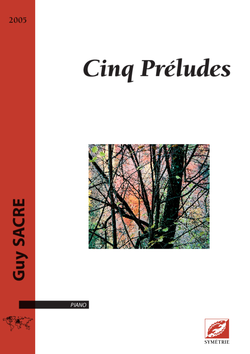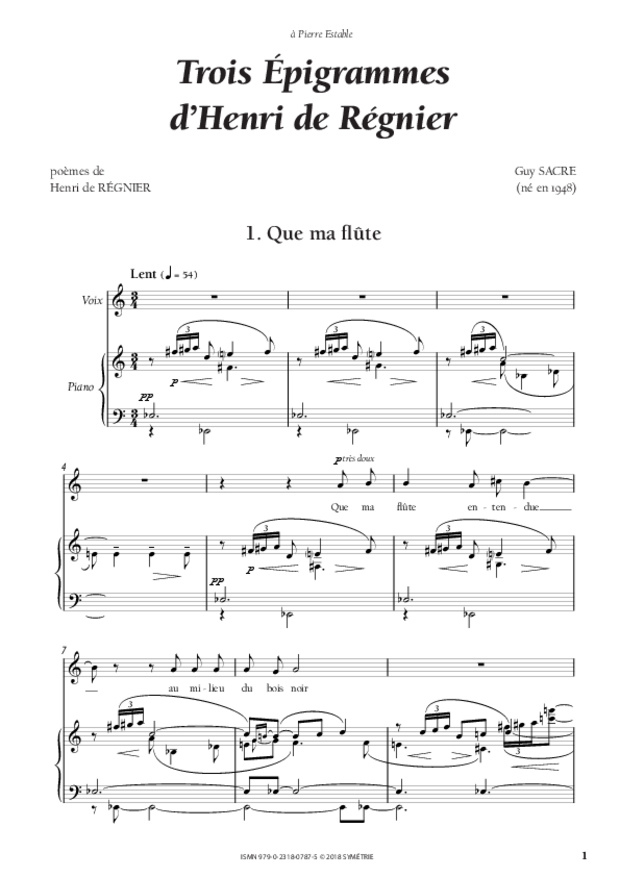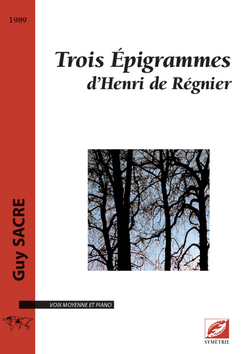Those who feel intimidated by Le Soulier de satin or the Cinq Grandes Odes (and at the same time fascinated—and dwarfed—by their sheer immensity) are surprised, on opening his Phrases pour éventails, to find that Claudel was also capable of great simplicity and concision. Whereas, in the works first mentioned, the whole of the dictionary, the whole of the Bible, Homer, Virgil and Dante were required, in the latter a handful of words suffice. And, amazingly, he is none the less cosmic; he succeeds in inscribing on these fragile “paper wings” the whole universe.
In order to express the wonderment of the sage, or the child (they are one and the same), at this breathtakingly, stunningly beautiful world, this world with its indestructible fabric—in order to count the walker’s steps and approach the mystery of the rose, evoke the ubiquity of the stream and the double shadow of a leaf, and even quietly confess some forever-inexpressible sorrow—, the musician in turn has to show humility, and aim for the same concision—and modesty—as the poet, without ever losing the smile of a child, or a sage (the two go together).
I turned to Éventails three times, choosing first seven, then six, and finally four of these seemingly fragile wisps of expression, which are in fact so full of substance and more eloquent in their brevity than many a wordy text. Each cycle has its unity, its shape, its time and tempo, and, I would like the musician, rather than dipping into all three at random, to observe the integrity of each one.
Guy Sacre
(translation Mary Pardoe)
Sommaire
- 1. Tu m’appelles la Rose
- 2. Éventail
- 3. Il a plu
- 4. Approche ton oreille
Audio Excerpts
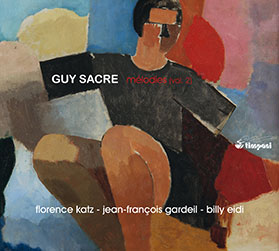
Tu m’appelles la Rose
Approche ton oreille
